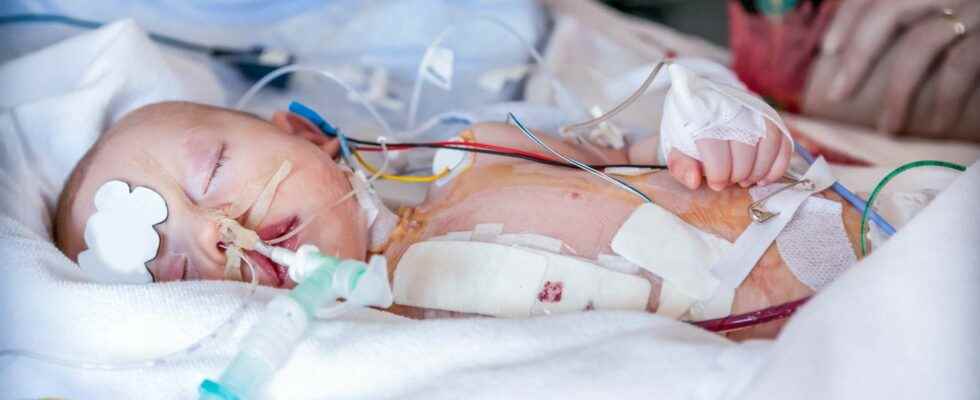You will also be interested
[EN VIDÉO] Should vegetarian diets be avoided during pregnancy? Vegetarian and vegan diets are increasingly adopted around the world. Studies show that they have protective effects against certain diseases and are good for the environment. The big question now revolves around the effects of this type of diet on pregnant women.
The United Nations has set as one of its priority goals the elimination of preventable child deaths by 2030. Since the vast majority of pediatric deaths occur during the first year of life, the mortality rate is used childbirth to track progress toward this goal — the rate of infant mortality (IMR) was defined as the number of deaths of children under one year old (J0-J364) per 1,000 live births in a given period.
This rate is a key indicator of the health of the population, given its strong relationship with socio-economic development and the quality of preventive and preventive care. curative existing in the country. In some countries with advanced economies like Finland and Sweden, the reduction in the infant mortality rate has been continuous since the Second World War. In other countries like France, this decline seems to be slowing down.
In the absence of updated data on the statistical trends of this indicator in France, scientists from Inserm, the University of Paris, the Assistance Publique-Hôpitaux de Paris, the Nantes University Hospital and the University of California wanted to go further in the statistical analyzes of the evolution of the rate of infant mortality in France and focused more specifically on the period from 2001 to 2019. The results are published in the journal The Lancet Regional Health Europe and testify to the importance of deepening the search for the precise causes of the 1,200 excess deaths observed each year in France before the age of one year.
During this study period, 53,077 infant deaths were recorded among the 14,622,096 births live, i.e. an average infant mortality rate of 3.63/1,000 (4.00 for boys; 3.25 for girls). Nearly a quarter of deaths (24.4%) occurred during the first day of life and half (47.8%) during the early neonatal period, ie during the first week after birth.
Further research into the causes of these deaths
Extensive statistical analysis identified two inflection points in 2005 and 2012 (figure above). The infant mortality rate decreased sharply from 2001 to 2005, then more slowly from 2005 to 2012. From 2012, a significant increase in the infant mortality rate was observed. This 7% increase took infant mortality from 3.32 in 2012 to 3.56 deaths per 1,000 live births in 2019.
Each year in France, an excess of around 1,200 deaths of children under the age of one is observed.
Sensitivity analyzes (complementary to support the robustness of the main analyses) showed that this trend was not linked to the modification of civil status practices, nor to the modification of medical practices for the management newborns withserious conditions. Subgroup analyzes indicate that this increase is mainly due to an increase in the infant mortality rate in the early neonatal period.
” Thanks to advanced statistical analyses, we have identified a significant worsening of the infant mortality rate in France since 2012. By comparing the data with other European countries with similar economies such as Sweden and Finland, each year in France we observe an excess of around 1,200 death of children under one year oldexplains Professor Martin Chalumeau, the last author of the study. It is essential to be able to explore in detail the causes of this increase by having, for example, systematic information on the precise medical and social circumstances of these deaths and by making this population, which is the most vulnerable, a real priority for research and public health, which is not currently the case”concludes the researcher.
Support an editorial team committed to popularizing science on Patreon!
Our mission ? Return the knowledge accessible to everyone.
We produce our own articles, investigations and reports every day, all on a human scale. Support us in this approach and this ambition.
Subscribe to Futura on Patreon!
Two subscription plans are offered to you with the following advantages:
- ” Futura ad-free »: get guaranteed ad-free access to the entire site for €3.29/month (+VAT).
- ” I participate in the life of Futura »: in addition to access without advertising, take part in the life of our independent media (votes, new content, surveys, etc.) for €6.29/month (+VAT).
Interested in what you just read?
